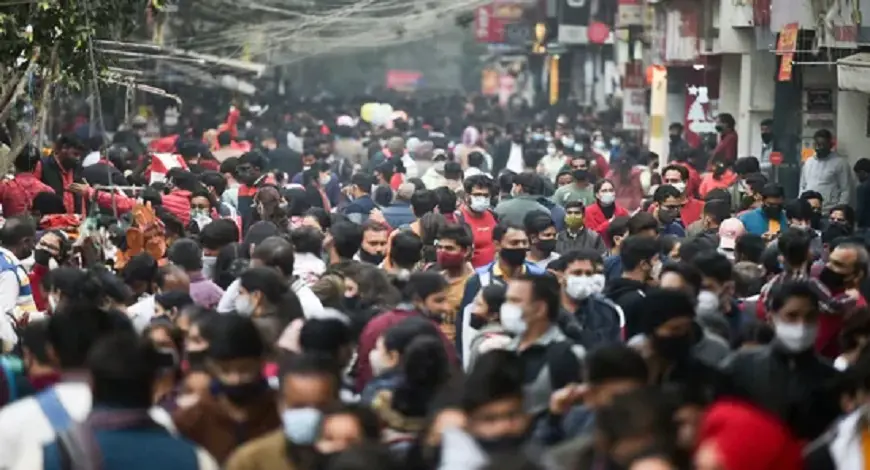

Photo for representation
The global population is projected to reach 8 billion people today, a historic milestone in human development, according to the United Nations.
“This unprecedented growth is due to the gradual increase in human lifespan owing to improvements in public health, nutrition, personal hygiene and medicine. It is also the result of high and persistent levels of fertility in some countries,” the UN report states.
The annual World Population Prospect report, released on Monday to coincide with World Population Day, also notes that the global population is growing at its slowest rate since 1950, having fallen to less than 1% in 2020.
While it took the global population 12 years to grow from 7 to 8 billion, it will take approximately 15 years—until 2037— for it to reach 9 billion, a sign that the overall growth rate of the global population is slowing, the report explains.
Countries with the highest fertility levels tend to be those with the lowest income per capita, the UN report states.
Global population growth has therefore over time become increasingly concentrated among the world’s poorest countries, most of which are in sub-Saharan Africa. In these countries, sustained rapid population growth can thwart the achievement of the Sustainable Development Goals (SDGs), which remain the world’s best pathway toward a happy and healthy future.
In 2022, the two most populous regions were both in Asia: Eastern and South-Eastern Asia with 2.3 billion people and Central and Southern Asia with 2.1 billion. China and India, with more than 1.4 billion each, accounted for most of the population in these two regions.
According to UN estimates, India is projected to surpass China as the world’s most populous country during 2023.
More than half of the projected increase in global population up to 2050 will be concentrated in just eight countries: Congo, Egypt, Ethiopia, India, Nigeria, Pakistan, the Philippines and Tanzania. Disparate growth rates among the world’s largest countries will re-order their ranking by size.
Population growth is caused in part by declining levels of mortality, as reflected in increased levels of life expectancy at birth. Globally, life expectancy reached 72.8 years in 2019, an increase of almost 9 years since 1990. Further reductions in mortality are projected to result in an average longevity of around 77.2 years globally in 2050.
Even though population growth magnifies the environmental impact of economic development, rising per capita incomes are the main driver of unsustainable patterns of production and consumption.
The countries with the highest per capita consumption of material resources and emissions of greenhouse gas emissions tend to be those where income per capita is higher, not those where the population is growing rapidly.
Meeting the objectives of the Paris Agreement to limit global temperature rise, while achieving the SDGs, critically depends on curbing unsustainable patterns of production and consumption, according to UN.
Yet, slower population growth over many decades could help to mitigate the further accumulation of environmental damage in the second half of the current century, the report adds.
The sixteenth meeting of the India-Nepal Bilateral Consultative Group on Security Issues (INBCGSI) was held…
Finance Minister Nirmala Sitharaman on Monday lauded the resilience of Indian exporters, highlighting that the…
Israel Defence Minister Israel Katz has accused Iran of violating the ceasefire and said that…
External Affairs Minister S Jaishankar held a meeting with South Australia's Governor Frances Adamson in…
Union Minister for Communications and Development of the Northeastern Region Jyotiraditya Scindia on Tuesday highlighted…
India handed over 1000 metric tonnes of rice and essential medicines to Cameroon. Cameroon's Minister…